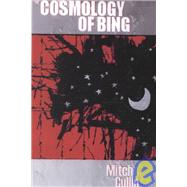In "Cosmology of Bing" Mitch Cullin offers a tale of intersecting lives during one school year in Houston: the college student and his artist roommate, the reclusive poet, the astronomer studying a supernova at a remote West Texas observatory, the young Japanese woman hopelessly in love with her gay friend -- and at the center of this group is Bing Owen, a college professor who drowns








